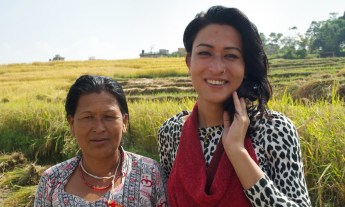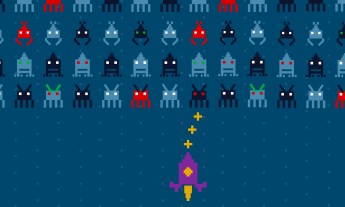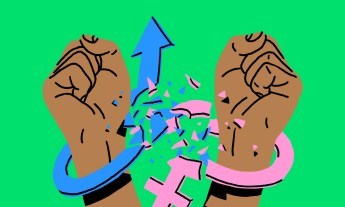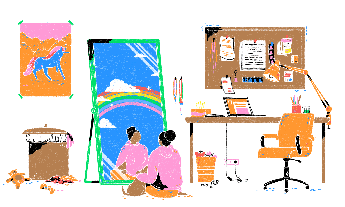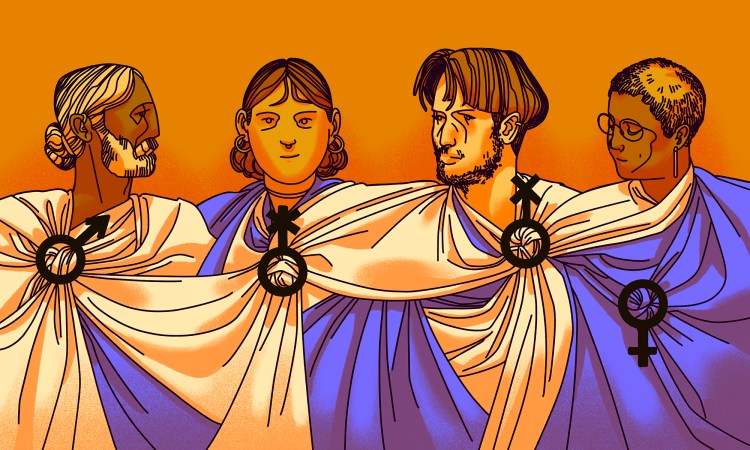
Trans and non-binary people are often told that their lived experiences are this or that. Black or white. Male or female. There’s no nuance in media depictions of our community. Often non-binary people like myself are lost within the discussion. It’s either trans women or trans men. No room at the inn for non-binary people.
The same thing often happens when we discuss LGBTQ+ rights. Often we hear some of the world’s most prominent speakers discussing LGBTQ+ rights and find ourselves waiting for our identities to be recognized. It’s almost like queer bingo, or like waiting for at least one woman to be read out in the list of nominees for Best Director at the Oscars. “Two men, or two women, should be able to walk down the road and be able to hold each other’s hands without prejudice,” people say. “It’s 2021; we should be able to do that.”
Of course, this should be true. But what I want to actually say is: “Hello, yes, I do understand this is not OK, and obviously something that we should all be able to do, but what about the fact that some people in this country literally don’t think trans people should be able to exist, work, live, be educated or just like literally do anything because they’re trans? What about the people across the world that are being murdered because they’re trans? What about the fact that right now, trans suicide is on the rise, and nearly half of all trans people have attempted suicide?”
But I don’t. I sit back at the Pride event that I’m at, and I swig my wine, pop outside for a cigarette, and then put it on my close friend’s Instagram story. I’ve got to a point now where I am tired. Twenty-two and tired. (That’s what my next book’s called.)
Non-binary and gender non-conforming identities have been continually erased from legislation, governmental forms and data-finding resources.
Non-binary people are truly some of the most beautiful, cherished and delightful people that I have ever met. They’re also some of the most boring; but that’s fine, not everyone is perfect. We are some of the most intelligent yet frustratingly resilient people out there, and the magnitude of our minds both pains me and fills me with awe.
For centuries we have existed, constantly knowing our truth and our validity. Knowing that we are wonderful. Knowing that although the world can’t seem to place us anywhere, we have found our home and our space within each other. But often we are torn down so quickly that that joy is forgotten. Even though we know how special and how valid we are, the powers that be claw at our very being, making us feel like we are constantly being stripped of our essence. Stripped, and put back together in an easily digestible manner. Put back together so that we feel like we fit, even when we don’t.
The landscape is torn. It’s broken. Actually no, it’s not broken, because the protections and provisions we need never existed to be broken. Non-binary and gender non-conforming identities have been continually erased from legislation, governmental forms and data-finding resources, and the fight for our identities to even be seen, let alone for institutions to change so they’re accessible, is something we are within right now.
The changes that trans/non-binary/gender non-conforming people are asking to be implemented aren’t born out of newness, but from tiredness. They’re long overdue.
In 2019 I campaigned for X passports in the UK, along with life-long campaigner Christie Elan-Cane, and now the fight continues with campaigners aiming to allow people outside of the binary to be able to identify as such on the 2021 census — a fact-finding and data-driven resource sent to every single person in the UK to find out more about how our own government can do better.
Being trans/non-binary/gender non-conforming in the 21st century feels like constantly trying to prove your existence, despite our rich history that shows we’ve been here forever. The changes we are asking to be implemented aren’t born out of newness, but from tiredness. They’re long overdue. It leaves us feeling like we can’t be placed anywhere, hence why our inter-community strength is so powerful and important to us.
When we have to venture into the world, where we aren’t heard, or listened to, it can feel like we are shouting against the wind. But if we all shout together, hopefully we will be heard. Hopefully, things will change.
We are trolled and vilified in our physical life and in our online communities, yet we are passed the baton to stand up and fight against people who have only the intention of bringing us down.
Allyship starts with empathy and compassion. Empathy that takes you out of yourself and just for a second puts you into the shoes of someone else. To make their experiences easier and more accessible.
Just a hug, that can be all it takes sometimes to show that you’re there and you’re present. Who knows, maybe then we won’t have to take such drastic action when it comes to the harmful and omnipresent methods of distraction and avoidance that often come with being victims of abuse, especially sexual abuse.
Countless times we are mocked, laughed at, trolled and vilified both in our physical life as well as within our online communities, yet we are passed the baton to stand up for ourselves and fight against groups of people who have only the intention of bringing us down. This happens all over the world to non-binary and gender non-conforming people on a day-to-day basis, and it goes unchallenged.
5 things I’d say to people wanting to be an ally
1. Check your privilege
Just because you’re part of a marginalized community doesn’t mean that you can’t be an ally. Being queer doesn’t mean that you’re not complicit within other institutional power structures, such as racism, Islamophobia, ableism, anti-Semitism, etc.
2. Don’t rely on the marginalized person to constantly be your educator
Unless you’re paying that person or that person or group has allowed themselves to dedicate time to the subject, don’t just ask marginalized people how to treat them with kindness, empathy and compassion.
3. Educate yourself
Many non-binary people had to educate themselves through social media and online resources on the very notion and history of what being non-binary is, so the least that you can do is actively do the same as an ally. Read the books, find the online spaces and remember to not take up too much space as an ally in these communities.
4. De-center yourself from the conversation
For example, as white people often our white fragility and lack of awareness when it comes to race can feel to some like an attack on you as a person. But knowing that this isn’t about your feelings as a white person and is more about knowing how we are complicit within institutional racism, and more so how we can start the continual journey to ensuring that we stamp out and erase these practices in our day-to-day, is the most important thing we need to be doing.
5. Despite what a lot of people will tell you, it’s OK to get things wrong
But it’s not OK to continually be wrong. Being called out or told that what you’ve done is wrong, again, similarly to point 4, isn’t about you. It’s not a time for you to whine about your feelings being hurt; it’s a time when you need to accept you were wrong and continue about your life ensuring you don’t make the same mistakes. Once is fine, twice is not.
I have been to countless events and talks that are focused around trans/non-binary people yet there have not been provisions made for people with physical access requirements so they can’t attend.
There’s a common misconception that queerness and transness means that we are unable to be complicit in other oppressive situations. Being queer or trans or non-binary does not mean that we do not also need to do the work. As a white queer non-binary person who works within the media, it is clear to me that a lot of the opportunities and work that I do acquire is a) because I have interesting makeup that people want to stare at but also b) because I’m white
and thin.
That’s deemed by them as a more “palatable” way to digest queerness, implying that queer black and brown people are just “too complicated” or “too rare” to care about, that their stories and lives aren’t worthy of care or celebration. Our queer and trans siblings of color need our allyship now more than ever, and it’s our job to ensure that we are looking out for our own community’s most marginalized, especially if we are in a position of privilege in our community.
I have been to countless events and talks that are focused around trans/non-binary people yet there have not been provisions made for people with physical access requirements so they can’t attend. How are we supposed to stand as a united front when our own queer spaces can’t show allyship to members of their own rainbow-clad group?
Especially now, trans and non-binary people need your allyship. As a human race, we are all in this together.
For the past three years, I’ve been sitting on panels, going to shoots and speaking to people about allyship, and it’s time for us to stop pushing that as our constant message. As non-binary people, there’s only so much that we can say about how we need you to help us. It’s not our job to tell cis people how to treat non-binary people with respect. Take our words as a marker of time and a marker of history, and realize that what we have said before still stands today.
Speaking about allyship often feels like screaming but nothing is coming out, like those weird, fanatical dreams that we often have where we are in turmoil and we are running around asking for help but no one can hear us. But this time it’s real.
Allyship isn’t just something that’s going to stop me from getting misgendered; it’s a tool that shows the communities that you apply it to that you’re there for us. You’re there, on this journey. That you know that allyship and unlearning societal behaviors isn’t a tick box but a process that you will carry out for the rest of your life. A constant process of evaluation and then action. Especially now, trans and non-binary people need your allyship.
As a human race, we are all in this together, and picking people up when they are down and being by their side when they need that extra bit of support should be instinctive.
The next time you see something that makes you uncomfortable in public or online, remember the silence that the victim can hear when no one comes to their side. Remember the vulnerability and loneliness that encompasses all of the violence that non-binary people face, day in, day out. The next time you see it, stand up, step in and be by our side.
Provide humanity, not because you’re a hero, but because you’re human.
Excerpted from the new book In Their Shoes: Navigating Non-Binary Life by Jamie Windust. © 2021 Jessica Kingsley Publishers. Republished here with permission. This article may not be reproduced for any other use without permission.
Watch Jamie Windust’s TEDxLondonWomen Talk now:








